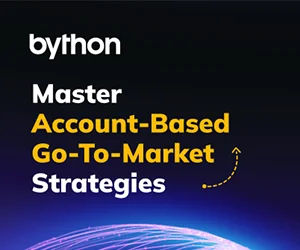As we move into the holiday season, Small Business Saturday is one of the most notable days on our minds. Following Black Friday and Cyber Monday (BFCM), Small Business Saturday encourages buyers to patronize and support their local businesses and bolster their region’s economy. One of the ways to make the most of this occasion is to invest in a fintech system, making it easier for SMBs to conduct business and streamline their growth.
Understanding the Meaning of Fintech for Small and Mid-sized Businesses (SMBs)
Technology has had a significant impact in the development of small company solutions. The use of fintech or financial technology, which may boost resource utilization, is one strategy to optimize its usage.
Fintech is defined as the use of digital tools to process payments, invoicing, cash flow management, and other financial processes (both transactional and operational) within the organization, as well as with external stakeholders like customers, suppliers, and credit providers.
The majority of businesses utilize it to effectively manage their funds or resources. Incorporating time-saving services such as smartphone wallets, capital asset trade, and accounting automation also enables companies to compete successfully in a competitive market. Understanding how fintech functions in an SMB may increase not just productivity but also customer satisfaction.
According to a 2019 poll conducted by EY of over a thousand small and medium-sized businesses, 25% of small and medium-sized businesses worldwide and 23% of small and medium-sized businesses in the United States have used fintech, which EY deems a strong adoption rate for technology. Adopters are organizations that use all four of the aforementioned categories: financial services and payments, financial planning, financing, and insurance. Another 22% of SMS respondents were on the point of adopting since they used three of these categories.
There is more to fintech than technology; it is a new approach to thinking? For instance, does a new bank need a branch? Do you need individuals? You just need an algorithm, an application, and a banking license. Numerous fintechs provide a vast selection of connectors with other services, thereby automating procedures. For instance, payment systems and payroll applications interface with accounting software, while accounting software interacts with banks. This also signals a mindset and culture shift for SMBs.
How Can Fintech Help SMBs?
Solutions based on fintech may enable small businesses to:
1. Offer online counterparts to their brick-and-mortar business
In recent years, e-commerce has experienced extraordinary growth, particularly in light of the COVID-19 pandemic-related lockdowns in many nations. Therefore, small businesses have begun to depend on e-commerce. E-commerce and electronic payments have enabled its market adaptations.
2. Obtain quick credit and business loans
FinTech enables more small enterprises to obtain the capital they require. While the majority of small entrepreneurs prefer to deal with community banks, FinTech streamlines the loan application process. In addition, the capacity for soft-pull lending is significantly expanded.
3. Predict cash flows
A cashflow projection is used to anticipate the incoming and outgoing cash flows of a company. It’s a crucial instrument for SMB leaders to employ when making critical decisions. It alerts business owners to anticipated fluctuations in cash flow that might influence their capacity to pay taxes, payroll, etc.
4. Leverage the cloud to store receipts
You may post receipts to your mobile phone app or a web app in a safe manner. In this manner, you will save time on data inputs. Additionally, SMBs may make notes and associate them with the appropriate transactions. It would be simpler to accomplish tax and expense-related activities if receipts could be downloaded at any time from the app or website.
5. Move expense management online
Managing a range of expenditures is required for the operation of a small business. These may include corporate travel expenses and office infrastructure expenditures. Fintech expense management systems may help eliminate the majority of paperwork and enable business owners and their employees the liberty to make transactions from their accounts.
6. Analyze and learn from customer behavior patterns
One of the greatest advantages of fintech is that it offers businesses with extensive client knowledge. Payment processing fintech offers companies with information on customer interests, desires, and requirements. Using the data supplied by fintech, small companies may boost their lead generation and client retention marketing.
7. Exchange funds with international stakeholders
Powered by fintech, US-based small businesses with global suppliers may participate in international transfers of money and foreign exchange services, therefore avoiding expensive bank fees. Fintech organizations protect user data and adhere to regulatory standards to preserve customer resources.
8. Keep customer data secure
Small companies must be vigilant every day to protect their data, particularly customer and financial information. Fintech eliminates this problem since it offers several security solutions, allowing businesses to protect themselves against cyber threats. This assurance might also reassure customers when they register with the company and make purchases.
How to Get Started with Fintech?
If you are an SMB, one of the easiest ways to get started with fintech is to speak with your local bank. Most large banks and insurance providers now offer fintech products that simplify the business user experience.
You can also conduct research on websites like Techfunnel to learn more about the fintech landscape and what it has to offer. Getting started with fintech is often as easy as downloading an app and entering your business details to start availing of services like speedy access to credit, digital invoicing, overseas payments, etc. Here is an example of fintech implementation for SMBs to inspire you.
SMB fintech example: Microsoft and Autobooks help small businesses get paid faster
One of the greatest obstacles small companies face is getting paid more quickly. By automating invoices and ledger accounts administration, Autobooks reduced the cashflow dilemma and enabled SMBs to be paid by up to nine days sooner. The company constructed a framework on Microsoft Azure, transforming it into a dependable digital business banking solution.
Autobooks also utilizes complex analytics to offer information and insights on future cashflow, giving company owners greater financial transparency and control. This is precisely the sort of service small companies want to help them better manage their financial demands.
Conclusion
Fintech, an abbreviation for financial technology, is changing the way small businesses work. Along with operational benefits, one of the greatest advantages of this technology is its ability to alleviate the cash flow issues that many entrepreneurs and small company owners experience.
Fintech’s expansion over the last ten years has made it a disruptor of small business challenges and boundaries, such as time-consuming bank procedures, an unwillingness to lend to startups, and expensive services such as accountancy. Fintech offers several benefits to small companies, which may utilize financial technology to streamline procedures, save costs, and improve customer service. Expect new finance technologies, such as blockchain technology, to be integrated into SMB applications.
As the fintech sector develops, several possibilities exist for SMB entrepreneurs. In the spirit of Small Business Saturday, have this guide nearby to digitize a key pillar of your organizational infrastructure: its finances. Also, leverage these five tips for small business entrepreneurs to drive growth.
Thanks for reading, and happy holidays!




